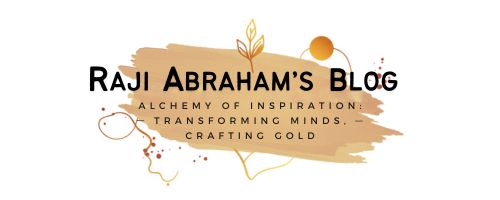The podcast above is generated using Notebook LM to provide additional insight and stimulate thoughts in the reader’s mind.
History is replete with examples showing how societies run by regimes that curtail free speech slide toward authoritarianism, stifling the growth and the very spirit of their population. Conversely, societies that cherish freedom of speech tend to be more innovative and resilient.
Responsible free speech acknowledges potential harm, such as incitement to violence, defamation, and deliberate spread of falsehoods. Many societies struggle to draw the line between protected speech and that which incites harm.
New modes of communication bring new complexities. Technological advances create challenges like spreading misinformation and hate speech at scale and testing the balance between freedom of speech and public safety¹.
Generative AIs trained using self-supervision mode have disastrous results. To address this problem, a human output is used as a reference for reinforcement learning.
In particular, advancements in AI have created new challenges in curtailing the dissemination of false information. While the right to free speech and expression protects one to express anything, it also shields the spread of false or misleading information. When disinformation becomes rampant, it erodes trust in institutions, facts, and even the very people in our communities.
Governments worldwide taking a multifaceted approach to combat the spread of AI-generated false information face a delicate balance. Ensuring actions to combat disinformation shouldn’t create overly broad restrictions impacting legitimate freedom of speech. Governments must find adaptive strategies to keep up with legislation as technologies evolve.
I propose a new, straightforward legislation that an ordinary person can understand and follow, independent of technological advancements. I call it the Law of Intent.
Any content scoped within the freedom of expression must explicitly state the intent of the content before the content is delivered. The intent should carry the same format, degree of clarity, and emphasis as the highest emphasis of the content. Any disagreement between the expressed intent of the content and the delivered content will violate the law. The effect of the content will determine the seriousness of the breach, and both the author and the distributor of the content will be responsible for the violation. The content distributor is any individual, group, or entity who explicitly acts to distribute or republish the content and does not include the individual, group, or entity owning the platform or medium used to distribute or republish the content. When autonomous systems distribute such content, the system or platform’s operator becomes the distributor. The content’s author or distributor should specify the intent as one of “Fact,” “Research,” “Opinion,” “Faith,” “Entertainment,” “Art,” or “Unknown.” All content parts must meet this criterion or portions where the intent changes must be identified accordingly. Platforms and mediums used to deliver or republish the content must support identifying the intent of the content.
Intent must come from the creator or distributor of the content and not from a third party. When you create new content, you know your intended purpose. When you share or repost content, you know your intention. When you do so, this law explicitly states that the intent must be expressed by identifying it as one of the following classifications.
(Note: The terms “Content” and “Speech” are intermixed to mean the same thing.)
Intent Classification:
- A fact is something known or proven to be true. It may be something that has actual existence or has happened or a piece of information presented as having objective reality. The content must be objective and verifiable independently when presented as a fact. The Fact category carries scrutiny for intention and a penalty for violation.
- Research is a systematic and diligent process of inquiry aimed at discovering, interpreting, and revising facts, theories, or applications. Use content intent as research when the information presented still evolves in knowledge and our understanding. Research must be purposeful, structured, evidence-based, and follow critical analysis. This Research category carries scrutiny for intention and a penalty for violation.
- An opinion is a belief, judgment, or way of thinking about something² that is not based on fact or knowledge. It may be a personal viewpoint or appraisal that cannot be agreed upon universally. Though facts can support opinions, they are subjective, open to debate, and changeable. The Opinion category will not carry any penalty for violation.
- Speech identified as faith, either in a religious or secular context, refers to trust in something or someone based on experience or a sense that they are reliable or capable. It can mean a complete trust or belief in a higher power, religious doctrines, and spiritual guidance, even without full proof. It can imply a more profound conviction about unverifiable or unprovable things. The Faith category will not carry any penalty for violation.
- Entertainment is any activity, performance, or experience providing amusement, pleasure, or diversion. It’s designed to hold an audience’s interest and attention and offer an enjoyable way to pass the time. Some examples of entertainment formats include Performing Arts, Literature, Media, Visual Arts, Hobbies, and Activities such as sports, travel, cooking, etc. The Entertainment category will not carry any penalty for violation.
- Art is a complex concept debated and defined in countless ways throughout history. Content as art supports all the other types of content and upholds the freedom of speech. However, it also implies that the information presented does not meet the standards of fact. The Art category will not carry any penalty for violation.
- The Unknown category is for content, where an automated (or AI) system distributes the content and cannot determine the category appropriately. Redistributors can also recategorize the speech to scale down the effect of an earlier category. For example, re-distributing a fact-category speech as unknown removes the burden of intent scrutiny from the distributor. The Unknown category will not carry any penalty for violation.
Displaying Intent:
Speech and the intent should follow the same delivery medium. An iconic representation of intent should be displayed when speech is visual, such as in text, diagram, or video. Universally accepted icons will preserve space and ensure consistency in interpreting the intent. Text can have headings preceded by the icon. Diagrams can have the frame or legend embedding the icon, and videos can have the icon as a watermark. Here are some possible icons for the intent obtained from the FlatIcon Library.
 Fact Fact |
 Research Research |
 Opinion Opinion |
 Faith Faith |
 Entertainment Entertainment |
 Art Art |
 Unknown Unknown |
Why do research and fact have separate categories?
It is vital to build trust with the consumer of the speech. Fact establishes that there is no debate about the content – everyone can agree with it. On the other hand, research indicates that there is every intent to present the truth, but it is only as accurate as we know for now. In the future, it may change or evolve as we know more. History has shown that much research content needs to be verified or done with a narrow focus to support the sponsor’s hypothesis. More funds may be necessary to refute the findings. By tagging these speeches as research, the consumer knows it still needs to qualify to the fact standard.
Why is faith a separate category?
Faith is very personal. Those who believe in such concepts will vehemently state them as facts. Yet, our standards for fact will make it challenging and upset the believers. We are categorizing it as Faith, which removes that burden. It indicates that we don’t want to dispute your statement; we all look at it from the lens of Faith, not fact.
Why Entertainment and Art are kept separate?
Art seeks to express ideas, emotions, or a unique worldview. It aims to provoke the viewer’s thoughts, self-reflection, or emotional response. It is often open-ended and subjective. Its meaning can shift depending on the viewer’s background and experiences. It may also confront, disturb, or push boundaries and make us question things. It can have a lasting effect, shaping perspectives and sparking cultural dialogue.
Entertainment provides amusement, enjoyment, and distraction. It usually has a straightforward message or narrative, offering the audience an escape because it relies on familiar tropes, predictable patterns, or satisfying resolutions. Though it may still contain valuable ideas or moments that resonate with the audience, it provides temporary enjoyment.
Thus, identifying these two types of content helps the audience differentiate between the two.
What happens if someone does not follow these rules?
Two situations occur: either the author or distributor does not categorize the content, or they are incorrectly categorized. Lack of category will eventually catch up with the community, and they will begin to suspect such content – because they are looking for a “fact” category to trust them. This creates the intended effect of this initiative: create a barrier so consumers do not unknowingly accept untrue content as fact. Incorrect categorization will violate the law and be dealt with accordingly. The entity owning the visual distribution platforms must ensure that content, including digital billboards, has categories. That leaves only channels whose effect on uncategorized content diminishes to non-technology levels.
What about historical content?
Digital distribution of old content may require the distributor to categorize it. Not all historical content requires categorization. Remember that the purpose is to describe the intent of the author. It does not make sense to categorize content where the author is no longer around. Moreover, those contents do not pose a threat to misinformation. However, distributors taking portions of the old content in their content have the intent of doing so. Institutions responsible for large distribution platforms will have the means to automatically organize the content using AI. At the least, they can categorize it as unknown. The archived content’s author may categorize and republish the content. Other situations will only occur for the non-active distribution of content (such as non-digital libraries), where the lack of a category will not create the tumultuous effect of technology.
Examples:
Platform interface
Platforms like Facebook, LinkedIn, Reddit, WhatsApp, Discord, Pinterest, etc., must force a selection of the content category before publishing, redistributing, or forwarding. The distributor can accept or recategorize the existing category when redistributing or forwarding existing content. In either case, they own the intent of the content and can be liable for the miscategorization of the content. Any of the consumers can object to the category, and the immediate distributor becomes liable if they cannot justify the intent. Thus, the entity, group, or individual redistributing the content must prove that the content is fact or research-based.
Presenting Content
 Man’s First Steps on the Moon³
Man’s First Steps on the Moon³
On July 16, 1969, Armstrong, Edwin E. Aldrin, Jr., and Michael Collins blasted off in the Apollo 11 vehicle toward the Moon (see Apollo program). Four days later, at 4:17 PM U.S. Eastern Daylight Time (EDT), the Eagle lunar landing module, guided manually by Armstrong, touched down on a plain near the southwestern edge of the Sea of Tranquillity (Mare Tranquillitatis). At 10:56 PM EDT on July 20, 1969, Armstrong stepped from the Eagle onto the Moon’s dusty surface with the words, “That’s one small step for [a] man, one giant leap for mankind.” (In excitement, Armstrong skipped the “a” in his prepared statement.) Armstrong and Aldrin left the module for over two hours, deployed scientific instruments, collected surface samples, and took numerous photographs….
 Coffee consumption and health⁴
Coffee consumption and health⁴
Coffee lovers worldwide who reach for their favorite morning brew probably aren’t considering its health benefits or risks. And yet, this beverage has been subject to a long history of debate. In 1991, the World Health Organization included coffee in a list of possible carcinogens. By 2016, it was acquitted, as research found that the beverage was not associated with an increased risk of cancer; on the contrary, there was a decreased risk of certain cancers among those who drink coffee regularly once their smoking history was adequately accounted for. Additional research suggests that coffee can be considered a healthy beverage when consumed in moderation. Why, then, in 2018, did one U.S. state pass legislation that coffee must bear a cancer warning label? Read on to explore the complexities of coffee…..
 Why Iran Hates America⁵
Why Iran Hates America⁵
October 7 was a day that changed the world. A massive and deadly war of retaliation in Gaza followed a brutal surprise attack by Hamas in Israel.
The US — a major security player in the Middle East, with its allies and enemies in the region — now has a target on its back. An Iran-backed Iraqi militia killed three US soldiers in a drone strike carried out on a US base in Jordan at the end of January, leading the US to undertake a wave of reprisal strikes on Iran-backed forces across the region. Washington is also entangled in a conflict with Yemen’s Houthis, another Iranian ally that is defying US naval power by disrupting global shipping through a critical transit point for cargo ships, the Red Sea….
 Is God Hiding from Me?⁶
Is God Hiding from Me?⁶
But go to Him when your need is desperate, when all other help is vain, and what do you find? A door slammed in your face and a sound of bolting and double bolting on the inside. After that, silence. You may as well turn away. The longer you wait, the more emphatic the silence will become. There are no lights in the windows. It might be an empty house. Was it ever inhabited? It seemed so once. And that seeming was as strong as this. What does this mean? Why is He so present a commander in our time of prosperity and so very absent a help in time of trouble? (A Grief Observed, 6)…
 Beyoncé’s use of Black writers and musicians can open the door for others in country music⁷
Beyoncé’s use of Black writers and musicians can open the door for others in country music⁷
Billboard reported Tuesday that Beyoncé’s single “Texas Hold ‘Em” had been officially serviced to country radio. It’s a step of formality dictated by the industry’s archaic allegiance to terrestrial radio and, relatedly, its need to control which songs and creators are allowed to ascend to country music’s highest heights.
No matter the millions of people who want to hear Beyoncé on country radio or witness her acknowledgment at the Academy of Country Music’s awards show or the Country Music Association’s show, this servicing is a necessary first step. It is not, however, a certainty – explicit or otherwise – that most country radio stations will play “Texas Hold ‘Em” or that they’ll play it enough for the song to chart high enough for ACM and CMA award eligibility…
 Norway To Start Hiding Its Standard Of Living To Make Other Countries Feel Better About Themselves⁸
Norway To Start Hiding Its Standard Of Living To Make Other Countries Feel Better About Themselves⁸
OSLO, NORWAY—Not wanting reports of its citizens’ happy, healthy lives to demoralize people living outside the Scandinavian nation, Norway announced Monday that it would start hiding its standard of living to make other countries feel better about themselves. “To not lord it over the rest of the world, the Kingdom of Norway will cease publication of its standard of living data beginning today,” said Prime Minister Jonas Gahr Støre, detailing the many ways in which Norway did not wish to “rub it in” with news about its high incomes, low inequality, robust social safety net, access to quality healthcare, and 49 weeks of parental leave at full salary. “Why should we hurt the pride of the world’s non-Norwegian inhabitants by publicizing our economic and political stability, our long life expectancy, our tuition-free colleges, our monthly allowance for all children under 18, and our—by any measure—remarkably high levels of personal happiness. It just seems mean-spirited to carry on and on about all that.” However, Gahr Støre emphasized that just because he was downplaying his country’s standard of living didn’t mean it wasn’t way better than everyone else’s…
Below is an AI-generated Image⁹. The icon at the top left expresses the intent, flagging that it is not real.

 The ultimate productivity hack is saying no¹⁰
The ultimate productivity hack is saying no¹⁰
Not doing something will always be faster than doing it. This statement reminds me of the old computer programming saying, “Remember that there is no code faster than no code.”
The same philosophy applies in other areas of life. For example, no meeting goes faster than not having a meeting at all.
Has this been done before? Yes – taking an oath. Punishments are different for intentional crimes.
This is not to say you should never attend another meeting, but the truth is that we say yes to many things we don’t want to do. Many meetings don’t need to be held, and a lot of code is written that could be deleted…
- Novak, M. (2010). Three Models of Balancing (in Constitutional Review). Ratio Juris. https://doi.org/10.1111/j.1467-9337.2009.00445.x
- BusyTeacher.org. https://m.busyteacher.org/24881-astronomy-fact-or-opinion.html
- Britannica, The Editors of Encyclopaedia. “Neil Armstrong”. Encyclopedia Britannica, https://www.britannica.com/biography/Neil-Armstrong.
- https://www.hsph.harvard.edu/nutritionsource/food-features/coffee/.
- https://www.cnn.com/2024/02/24/opinions/why-iran-hates-america-zakaria/index.html
- https://www.desiringgod.org/articles/is-god-hiding-from-me
- https://www.usatoday.com/story/opinion/columnist/2024/02/24/beyonce-country-album-grammys-uplifts-black-artists/72675994007/
- https://www.theonion.com/norway-to-start-hiding-its-standard-of-living-to-make-o-1851279341
- https://preview.redd.it/just-some-photos-of-our-parents-going-to-school-v0-hl2iuzgrdvua1.jpg?width=1024&format=pjpg&auto=webp&s=e006e8bfe56a80b435d110983436156b703e0d52
- https://jamesclear.com/saying-no


